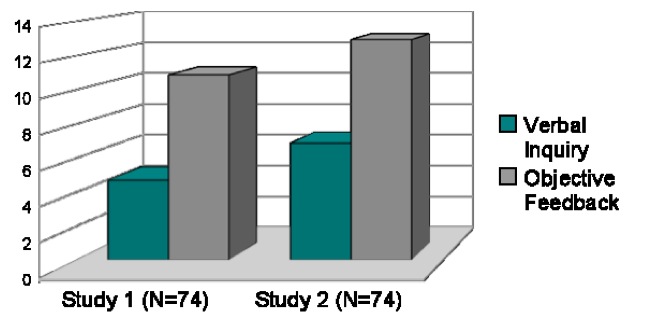At Bergen and Associates, we are committed to providing the very best therapy possible to our clients. We take this commitment seriously, and to that end, we have done our homework.
What research has shown is:
- The number one predictor of successful outcome of therapy is the client's perception of how well the therapy is going. This is far more relevant than the model of therapy used, the educational background of the therapist, the number of years of experience of the therapist. Over and over again, it has been shown that the client's understanding of how well the therapist relates to him/her and the perceived ability of the therapist to make a difference for the client is what will make the difference.
- Health care professionals (including counsellors/therapists) typically "guesstimate" that we are being quite successful with our clients. In fact, when researchers ask clients how well treatment is going and ask therapists how well treatment is going, the clinicians generally see things more positively with than the clients, and tend to overestimate how positively the client is perceiving the treatment. In other words, we professionals overestimate how effective we are with out clients. (Ouch!)
What it seems clear that we as professionals need to do is to stop guessing and surmising about how well the counselling is going for our clients, and actually objectively and clearly measure how the client is experiencing the work, and if it is making a difference to the client.
Please understand that most, if not all therapists, make a point of checking in with clients to see how it is going. However, it's hard for clients to give us that information.
- It's not easy telling someone who is an "expert", who has trained for years, that what they are doing with you isn't working. Important, but not easy.
- Clients aren't used to giving clear feedback to health professionals in general...most simply don't ask. (Quick question: When was the last time your doctor/dentist/physio said, "So am I being an effective caregiver for you?") So when counsellors ask, it's hard to know that we really mean it.
- Sometimes clients are so wrapped up in what they are saying in session, that there is little room to stop and ponder if the work is being done in the most effective way possible.
So, Bergen and Associates has an online evaluation that takes less than a minute to complete at the begining and end of each session that tracks how well the counselling is going. We have iPads in our office that allow for this information to be securely captured and tracked, allowing the therapist to fine-tune the counselling to make it ever more effective for each client.
In randomized controlled clinical trials, when therapists use this approach, the rate and size of the change in the client is significantly enhanced, with the replicated studies showing approximately double the change. Yes, you read right: double the amount of positive change. The numbers on the left hand side of the graph show units of change as measured by an outcome rating scale. N is the number of subjects in a particular study.

In further randomized controlled clinical trials that have been replicated (i.e. it wasn't a one time "fluke"), therapists used this quick one minute tracker at the beginning and end of the session with couples. When they checked back with the couples 6 months after treatment, the number of clients that had since separated was only 17%, compared with 34% of the couples that had been in the same treatment (with the same therapists) that had not used this measure.
